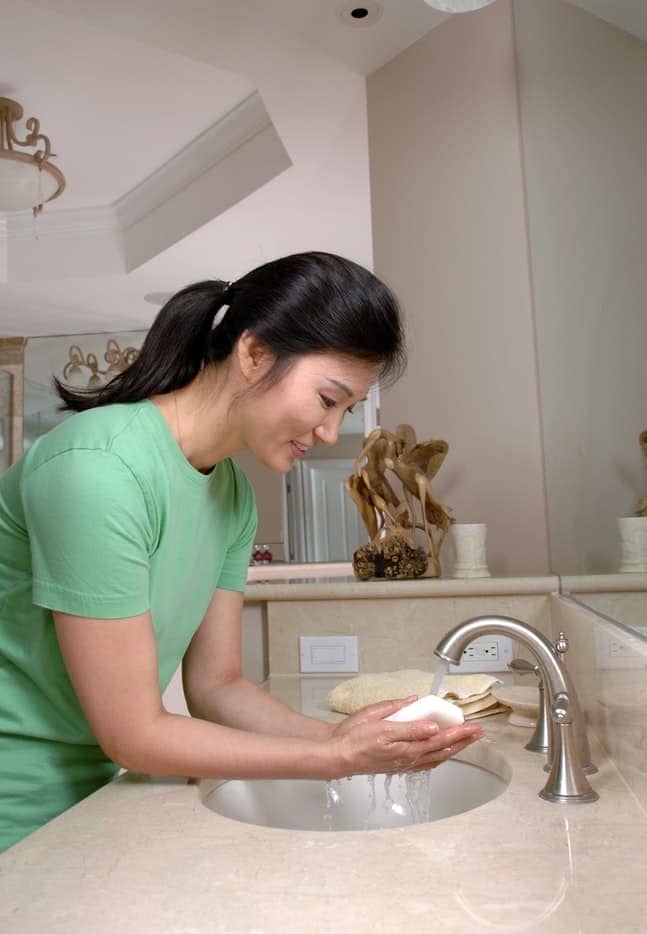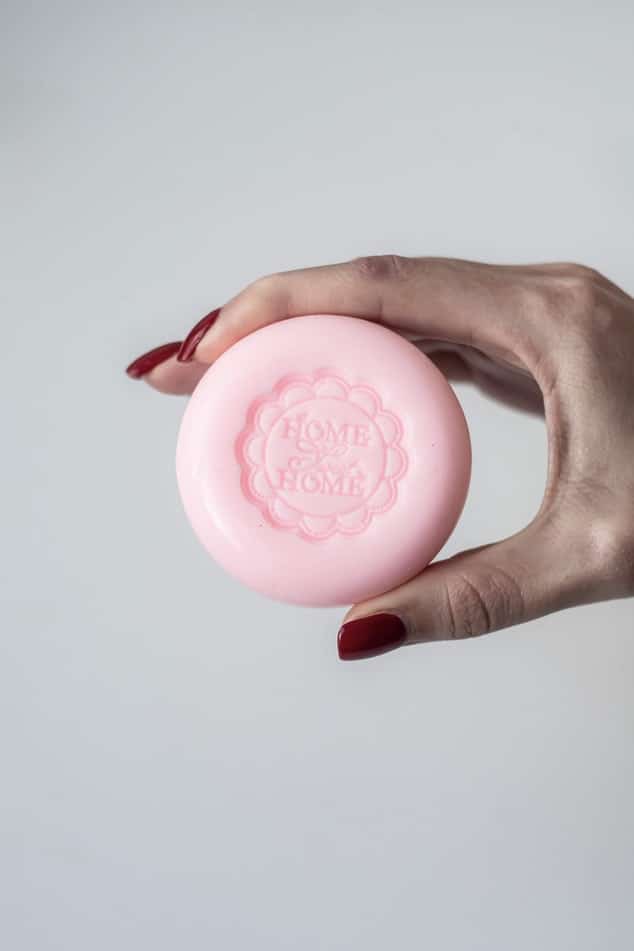Using washing liquids and other products is a common thing for everyone today, but people start getting more concerned about the safety of the household cleaning agents. Since most of them contain harmful chemicals, everyone will only benefit from knowing which products can be dangerous.
And today we will discover whether Palmolive dish soap is a toxic product or not.
Why Is Palmolive So Popular?
Everything is simple here. This brand produces relatively cheap products for various household and care purposes, from soap bars and shampoos to dishwashing detergents.
Effective and multiply proved washing qualities, the high potency of the agent when dealing with grease, oils, and fat on the dishes, and its attractive price have done their task.
Today one can hardly find a person who would never hear of that brand!
Take a Look At The Content
To figure out whether a product is safe or not, we need to examine its list of ingredients thoroughly first of all.
So what does Palmolive label says?
Like any washing stuff, it has so-called active and inactive components.
- Among the active ingredients, we can see triclosan. It is an organic compound which means that it’s produced artificially and contains carbon. Triclosan is antibacterial, and it’s very difficult to wash off. For this reason, it’s very effective in killing germs since the residue remains on the surface (or on the skin) for quite a long time protecting it from any hazard.
- As for the inactive components, Palmolive includes ammonium laureth sulfate, a mild emulsifier, and some other ingredients that make it more spreadable and add scent and color.
So why is it considered to be harmful?
All because of the two components.
One is called SD Alcohol 3A. It’s a grain alcohol, and it’s considered to be potentially toxic. There was even evidence (though limited) that showed it caused cancer.

Another one is sodium sulfonate, a frequent “guest” in many household products. This thing is carcinogenic and can cause eyes and skin irritation, vomiting, and even end up in dermatitis, especially if a person is in constant contact with it directly.
What Components Shall We Be Warned About?
Since such a well-known product can be harmful, a reasonable conclusion comes to mind: what other ingredients used in household detergents can be dangerous? This is especially important for families with little children since their immune system and bodies are not so strong and resistant as of the grown-ups.
To be informed of the dangerous compounds that can be hiding in common cleaning products, we prepared a chart with the most hazardous compounds that must be avoided.
[table id=48 /]
Respectively, since so many cleaning products, cosmetics, and personal care products contain harmful chemical compounds of different levels of danger, it will be more reasonable to replace them with safer counterparts.
Fortunately, today the market is getting filled with various organic clean and care products from detergents and soap bars to shampoos and creams, and it is even possible to choose handmade and non-chemical goods that will cause no side effects (unless you are allergic to any of those natural components they contain).
Considering the harm that we can get from using mass-market means daily, it makes sense to go for the safer even though more expensive products.
Your health is worth it, don’t you agree?
[wp-faq-schema title=”Frequently Asked Questions”]

Will I die if I eat soap? May sound weird but I’m just curious.
No, you won’t die since soap is non-toxic. You can be vomiting badly, but that’s all that’s waiting for you.
What is the healthiest dish soap? I’m trying to find an organic but rather cheap product. Can you advise me something?
Hi! I can offer you Seventh Generation, Ecover, Puracy, or Green Works. I tried them all and I liked each of them.
Hi! Please, give me a hand! Is Dove soap septic safe?
I guess all their products are septic-friendly, at least, I use Dove dish soap and my system is still fine.
Hello everyone! Does Palmolive dish soap kill germs? Thanks in advance!
Yes, it destroys germs and bacteria, and it even works after it dries on your hands.
What is the best all natural dish soap? Does anyone know some affordable products?
I can suggest 7th Generation or Puracy, but for some people, they’re not quite affordable – Puracy costs like 23 dollars per bottle.
Please, help me to choose! What is the safest dishwashing liquid?
My best choice is Puracy Natural Liquid Soap. Try it, it’s great!
My kid accidentally washed our dog with Palmolive dish soap! It seems like the dog is fine (except for being shocked!), but I wonder: is Palmolive dish soap toxic to dogs? Does anyone know?
I’m not a vet, but our family has always had dogs, so I’m pretty knowledgeable about everything that comes with their keeping and care. And I can tell you that any dish soap is not good for a dog! I mean, if you wash the pet with this soap once, it will survive that, but you should never do it regularly! These soaps contain chemicals, as well as dyes and alcohol, that are harmful for our pets. I’d say you should visit a vet to have your dog examined for any skin issues or allergic reactions, and forbid your kid to wash the pet with anything!
Is Palmolive dish soap toxic to cats? I need to wash my cat since it returned home after being out for two days, and he’s hell dirty! But I have nothing but this Palmolive thing!
I’d not recommend you wash your cat with that stuff! Dish soaps are very harmful for pets because of the chemicals they contain. I heard of people washing their cats or dogs with dish soap and animals ended up with skin allergies or even something worse!
Is there anyone here who’s knowledgeable about soaps? See, we have a toddler, and right now, we ‘re using Palmolive dish soap for washing dishes, and hers as well. But I’m pretty much unsure about the safety of this soap for a baby. Are there any harmful chemicals in this dish soap? Does anyone know?
Hi! Well, I can’t call myself a specialist in this topic, but I know for sure that there is one chemical in Palmolive that’s not good neither for babies nor for adults. It’s called sodium xylenol sulfonate if I remember it correctly. It’s carcinogenic and can cause skin and eye irritations. I’d say you should buy special dish soap for babies (and maybe even use it for yourself!).
Is Palmolive dish soap safe for plants?